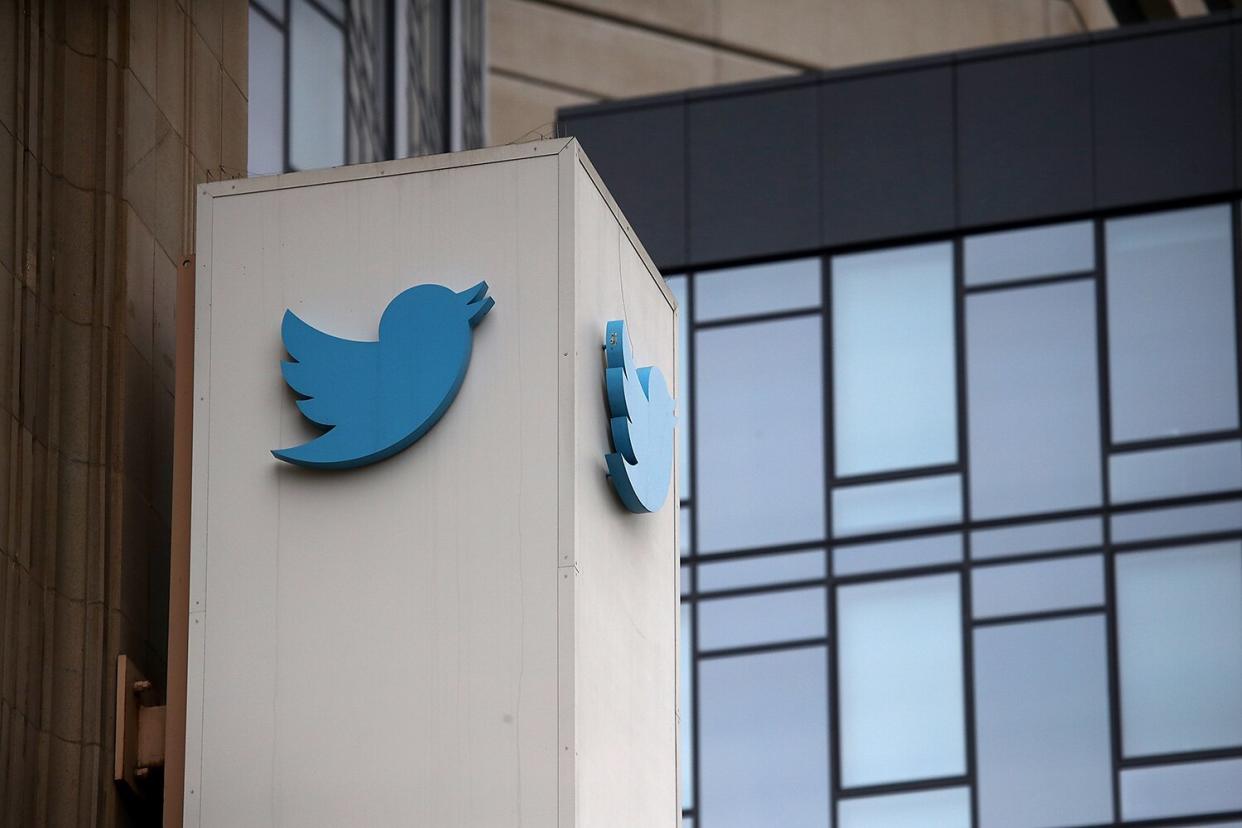Twitter Closes Offices While Google, Apple and More Change Office-Return Plans amid Delta Surge

Justin Sullivan/Getty
Several major tech companies — including Facebook, Twitter, Google and Apple — are altering their in-office work plans as the COVID-19 Delta variant impacts the U.S.
On Wednesday, Twitter announced it is re-closing its offices in New York and San Francisco. The buildings had just reopened July 12, with employees permitted to voluntarily return to the office.
Google is pushing back its return to the office to October amid the spike in coronavirus cases nationwide. Alphabet CEO Sundar Pichai wrote in a blog post that all workers returning to the company's campus must be vaccinated, except for those with medical exceptions or other "protected reasons."
"Getting vaccinated is one of the most important ways to keep ourselves and our communities healthy in the months ahead," Pichai said Wednesday.
He added that he hopes the decision "will give everyone greater peace of mind" as more offices and businesses begin to reopen.
RELATED: Rising Delta Cases Are Disrupting Return-to-Office Plans for Companies Around the Country
Google is the first big tech company to mandate COVID-19 vaccines for its employees, who Pichai said will not be required to be in office until at least Oct. 18.
Facebook is also requiring its employees to get vaccinated before returning to the office. The social media company has been heavily criticized for allowing misinformation about COVID-19 and vaccines on its network during the pandemic.
"As our offices reopen, we will be requiring anyone coming to work at any of our U.S. campuses to be vaccinated," Lori Goler, Facebook's Vice President of People, said in a statement, per CNBC. "How we implement this policy will depend on local conditions and regulations. We will have a process for those who cannot be vaccinated for medical or other reasons and will be evaluating our approach in other regions as the situation evolves. We continue to work with experts to ensure our return to office plans prioritize everyone's health and safety."
In mid-July, Apple pushed back its office reopening to October, according to Bloomberg. CEO Tim Cook told employees in June to expect to be back in the office at least three days a week beginning in September.

Sam Hall/Bloomberg via Getty
RELATED: Fauci Says the Delta Variant Is the 'Greatest Threat' to Ending the COVID Pandemic in the U.S.
"As the situation continues to evolve, we're committed to the same measured approach that we have taken all along," the company told employees, according to The New York Times.
Meanwhile, Indeed is taking a more drastic approach, pushing its return-to-office date back from Sept. 7 to Jan. 3, 2022. Paul Wolfe, senior vice president of human resources, told CBS MoneyWatch that the Delta variant is largely to blame.
"Up until yesterday, we were going to go into new ways of working — with employees electing whether they want to be in office, hybrid or remote, based on their job," Wolfe said Wednesday. "This morning we announced to employees we are moving into this new way of working starting in January, mainly because we've got these new variants that are now the dominant strains in the U.S. and are much more contagious than the previous variants."
Tsedal Neeley, a remote-work expert and professor at Harvard Business School, told CBS MoneyWatch that corporations must be adaptable with their return-to-office plans. For some, she noted, staying remote longer "might be necessary" if employees have vulnerable, unvaccinated children at home, or themselves are vulnerable.

Getty Vaccine
RELATED: U.S. Will Not Lift Current Travel Restrictions Due to Delta Variant — Here's What That Means
"It's incredibly important to understand the needs of employees," Neely said. "And the recent guidance suggests that we need to reassert caution. Organizations need to ensure their policies are in line with the CDC's and they need to ensure that wherever they are that they are also adhering to local government policies."
As of Thursday, 49.4% of Americans (163 million) have been fully vaccinated against COVID-19, according to the Centers for Disease Control and Prevention. About 57% have received at least one dose.
As information about the coronavirus pandemic rapidly changes, PEOPLE is committed to providing the most recent data in our coverage. Some of the information in this story may have changed after publication. For the latest on COVID-19, readers are encouraged to use online resources from the CDC, WHO and local public health departments.PEOPLE has partnered with GoFundMe to raise money for the COVID-19 Relief Fund, a GoFundMe.org fundraiser to support everything from frontline responders to families in need, as well as organizations helping communities. For more information or to donate, click here.

 Yahoo Movies
Yahoo Movies 
